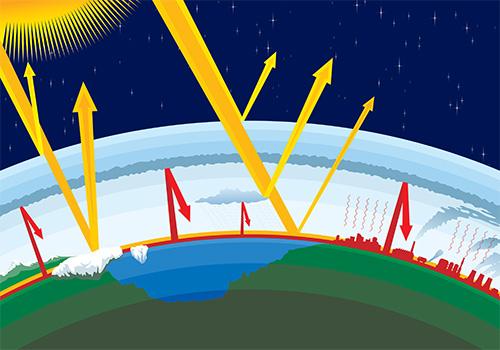Greenhouse Gases and the Greenhouse Effect
Greenhouse gases are certain gases in the atmosphere (water vapor, carbon dioxide, nitrous oxide, and methane, for example) that trap energy from the sun. Without these gases, heat would escape back into space and Earth’s average temperature would be about 60º F colder. Because of how they warm our world, these gases are referred to as greenhouse gases.
Greenhouse Effect
The greenhouse effect is the rise in temperature that the Earth experiences because greenhouse gases trap energy from the sun.
Sunlight enters the Earth's atmosphere, passing through the blanket of greenhouse gases. The Earth's surface absorb the sunlight’s energy. Once absorbed, this energy is sent back into the atmosphere. Some of the energy passes back into space, but much of it remains trapped in the atmosphere by the greenhouse gases, causing our world to heat up.
Without the greenhouse effect, the Earth would not be warm enough for humans to live. But if the greenhouse effect becomes stronger, it could make the Earth warmer than usual. Even a little extra warming may cause problems for humans, plants, and animals.
Scientists think that the things people do that send greenhouse gases into the air are making our planet warmer.




